
by: SEO Strategist
Ashot Nanayan
Ashot Nanayan is the CEO and Founder of DWI and a seasoned SEO strategist. With a proven track record of...
All Articles by Ashot Nanayan
September 29, 2025
6 min read
Our agency began taking on healthcare SEO clients in early 2023, when I received an offer from the founder of a B2B healthcare manufacturer. Maybe it was luck, I don’t know, but the client trusted us when we had a very small team, no experience in healthcare, and none of the dozens of five-star reviews we have now.
We successfully handled the first healthcare project, and after several months, our efforts paid off (the competition was not tough, to be honest). We enjoyed the project so much that we decided to put more focus on healthcare providers.
In the next 2–3 years, we ran dozens of healthcare SEO campaigns, and finally, I had the time to share our experience with you. Everything is honest with proof; nothing is exaggerated. So, let’s get started.
A little over two years ago, we started working with a B2B healthcare device manufacturing company that specialized in catheter tipping, RF welding, and similar machines. The owner, originally Armenian but living in Los Angeles, was one of the main reasons we decided to take on this project.
The personal connection gave us the confidence to move forward, even though the project itself looked incredibly challenging from the start.
The complexity came down to the products and the lack of reliable information available online. Unlike general B2B SEO, this niche had very few resources we could rely on, whether it was content to build from or backlink opportunities to pursue.
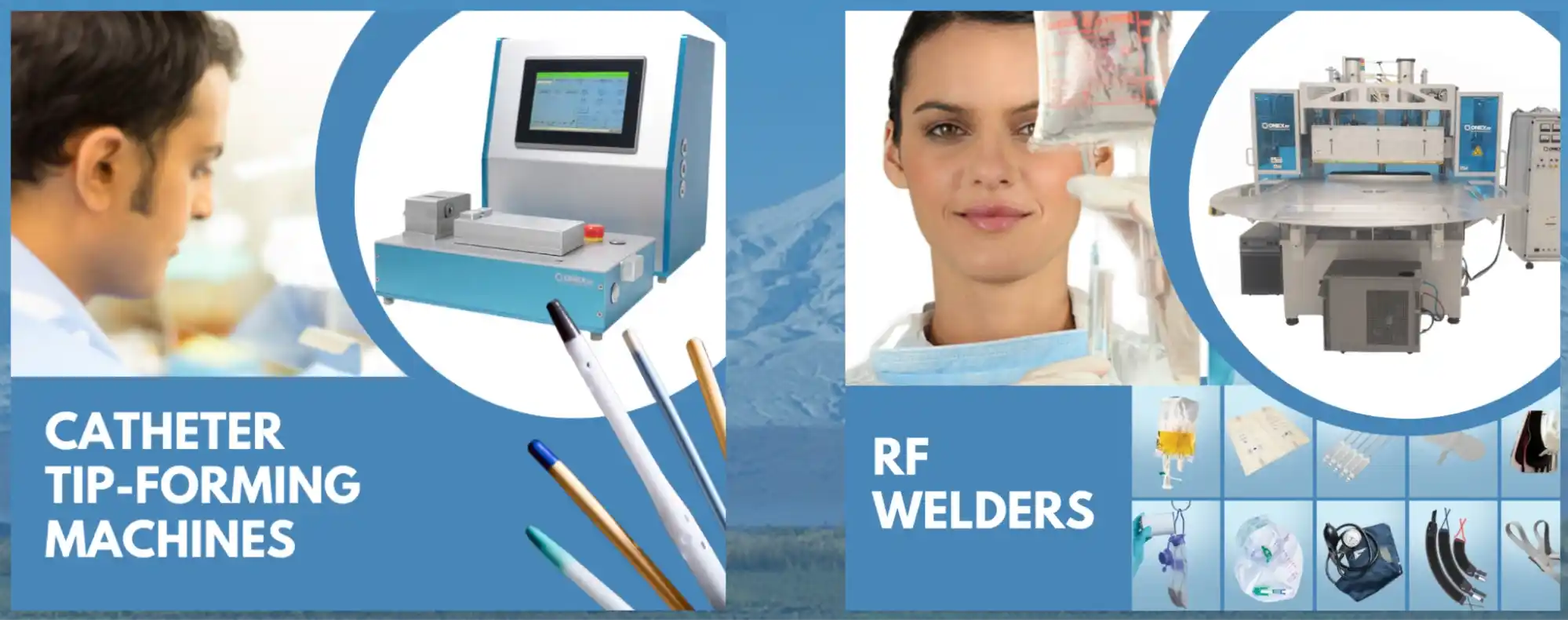
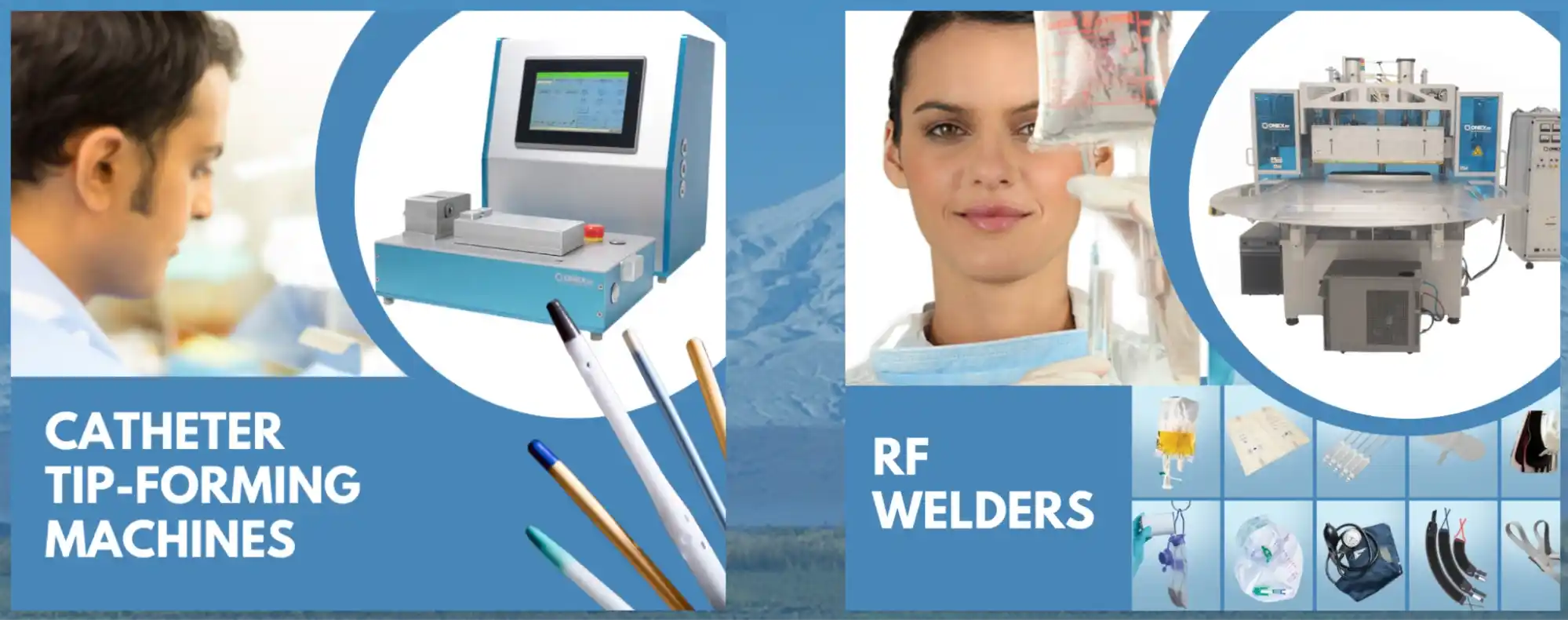
Everything felt limited. On top of that, the client was completely new to digital marketing. He didn’t know much about SEO or online strategies in general, which added another level of challenge.
But here’s what made it work: he fully trusted us from day one, which trust gave us the freedom to build our strategy the right way, even when it meant addressing tough gaps in content and creativity.
Looking back, this was one of those partnerships where belief in the process mattered just as much as the technical side of SEO.
The website was built on HubSpot, which I’ve never considered the best CMS for SEO. Still, we had to work with what we had. Our first step was a complete redesign.
The original site barely qualified as a design at all; it was outdated and broken in many places. We brought in a HubSpot developer, redesigned the entire website, and handled the copywriting for landing pages, product pages, and collection pages.
Once the redesign was in place, we set up the technical foundation to make sure everything ran smoothly.
Not easily, but we could improve Google CWV score
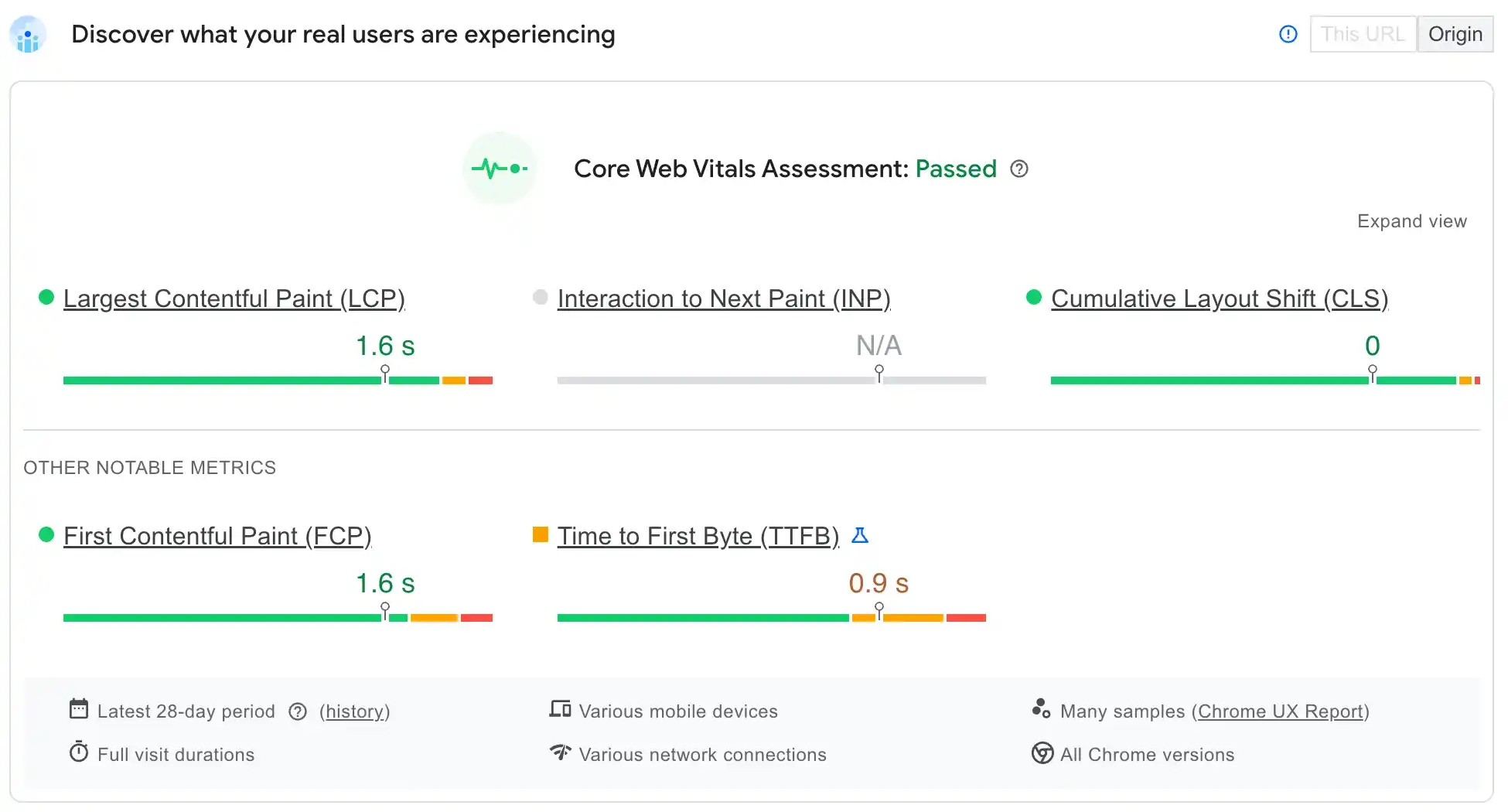
As well as cannibalization issues, dozens of crawl and indexing issues on GSC.
The next challenge was content. Since the niche was so specific, it was nearly impossible to find writers who understood the subject matter. Our solution was to train the owner himself to write SEO-optimized content.
After about two weeks, he was able to produce material we could shape into proper blog posts. Together, we managed to publish more than ten articles targeted at a B2B audience.
With content in place, we worked on the website’s structure. We reorganized the header menu and overall hierarchy to make the user experience cleaner and easier to navigate.
The last big challenge was link-building. For months, the client was hesitant to invest in it, thinking it wasn’t necessary. Eventually, we explained why backlinks were important for authority, and he agreed to a modest budget.
We built a handful of links each month through guest posts, niche edits, and a few other techniques. In the end, we agreed to continue on a maintenance plan, focusing on gradual improvements and letting the results build over time.
The keyword volumes for this project were small from the start. That’s expected in a niche like catheter tipping or RF welding machines; search demand is limited because the products are so specific.
But in this niche, one lead can easily turn into a deal worth hundreds of thousands of dollars. Anyone who’s been in this space knows what that means.
Within just six months, and with a very limited SEO budget, we managed to completely reshape the online presence of this company.
The redesign gave them a professional, trustworthy website. The technical and structural fixes established a strong SEO foundation. Our efforts to build topical authority paid off, even though the content opportunities were narrow.
Traffic grew from almost nothing to around 600 monthly visits/month (Over 600% organic traffic growth)
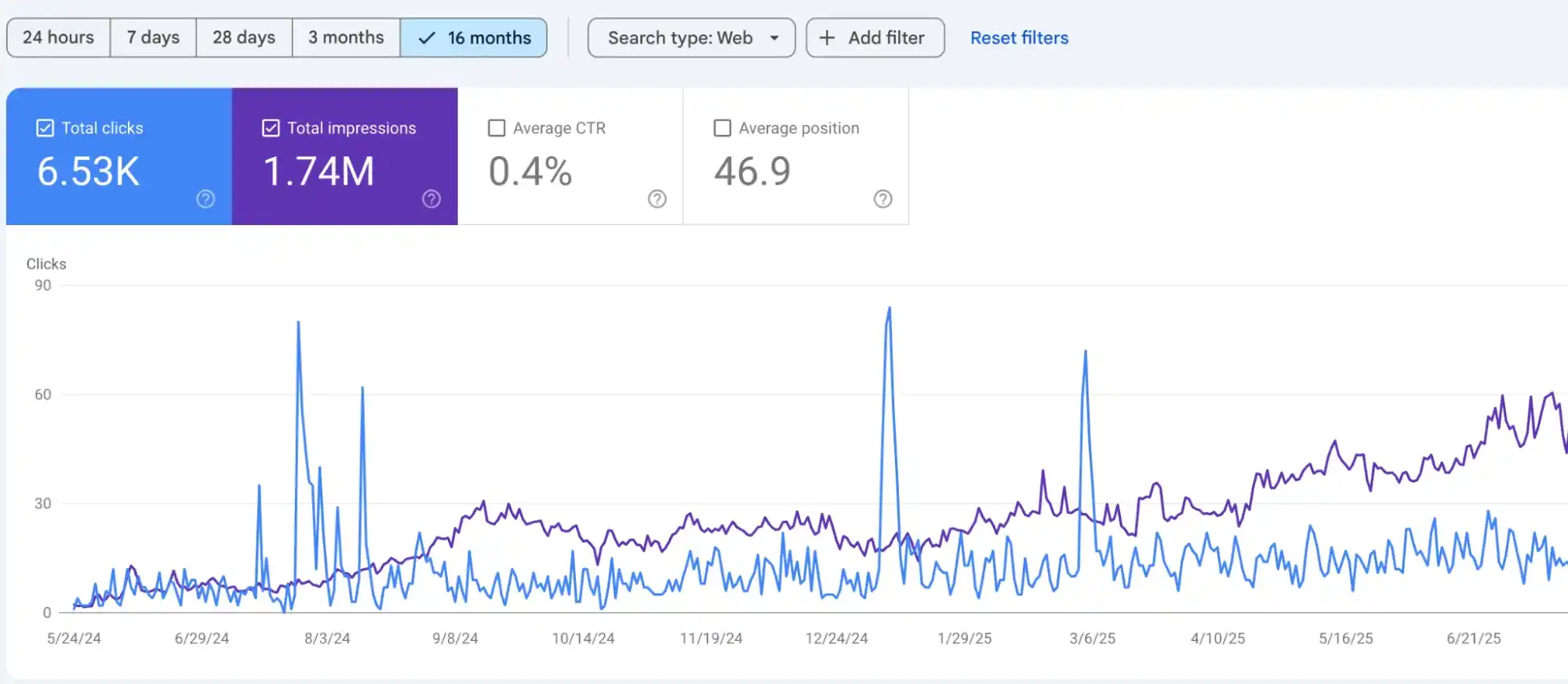
That may sound small at first glance, but in a market with such limited search demand, it was a big win. More importantly, their target keywords moved from nowhere to consistently ranking in the top five.
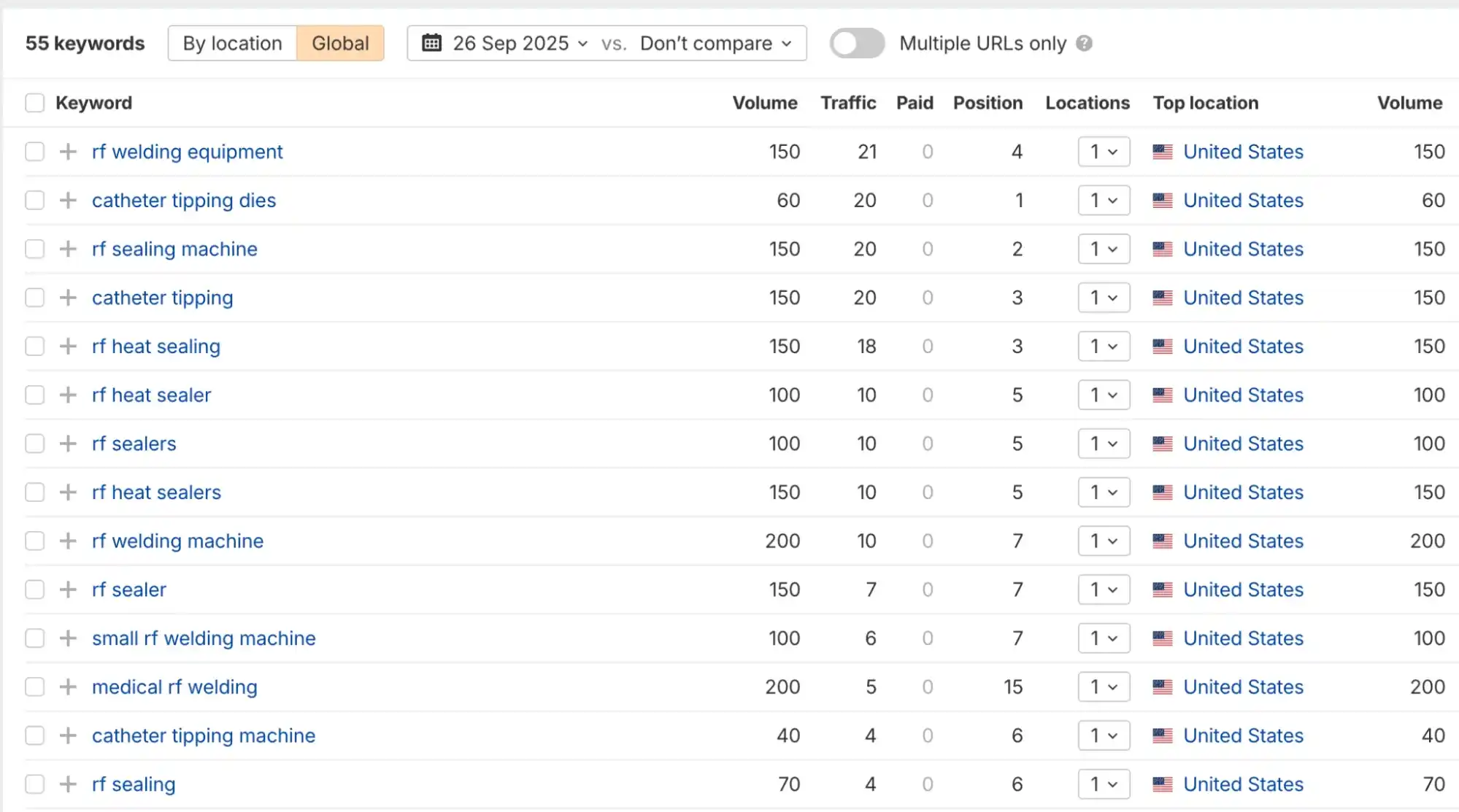
Because in cases like this, users don’t simply go online and “add the product to cart,” it was difficult to measure the exact number of leads directly from SEO. Still, the client reported that over time, they noticed around a 50% increase in leads, which confirmed the impact of the work.
As visibility increased, the company was able to cut back on advertising spend and rely more on organic search.
In short, the project showed how even a niche with limited search volume can generate serious business opportunities when SEO is done right.
If you’re looking for similar results, you can reach out to our healthcare SEO agency or request a custom proposal tailored to your business.
This was one of the strongest dental SEO case studies we’ve handled in the healthcare industry. The project focused on an emergency dental clinic in the United Kingdom that wanted to dominate the local search results for urgent care services.
Their number one goal was clear: rank in the top three results for high-intent keywords such as “24-hour emergency dentist near me” and other variations people search for when they need immediate dental treatment.
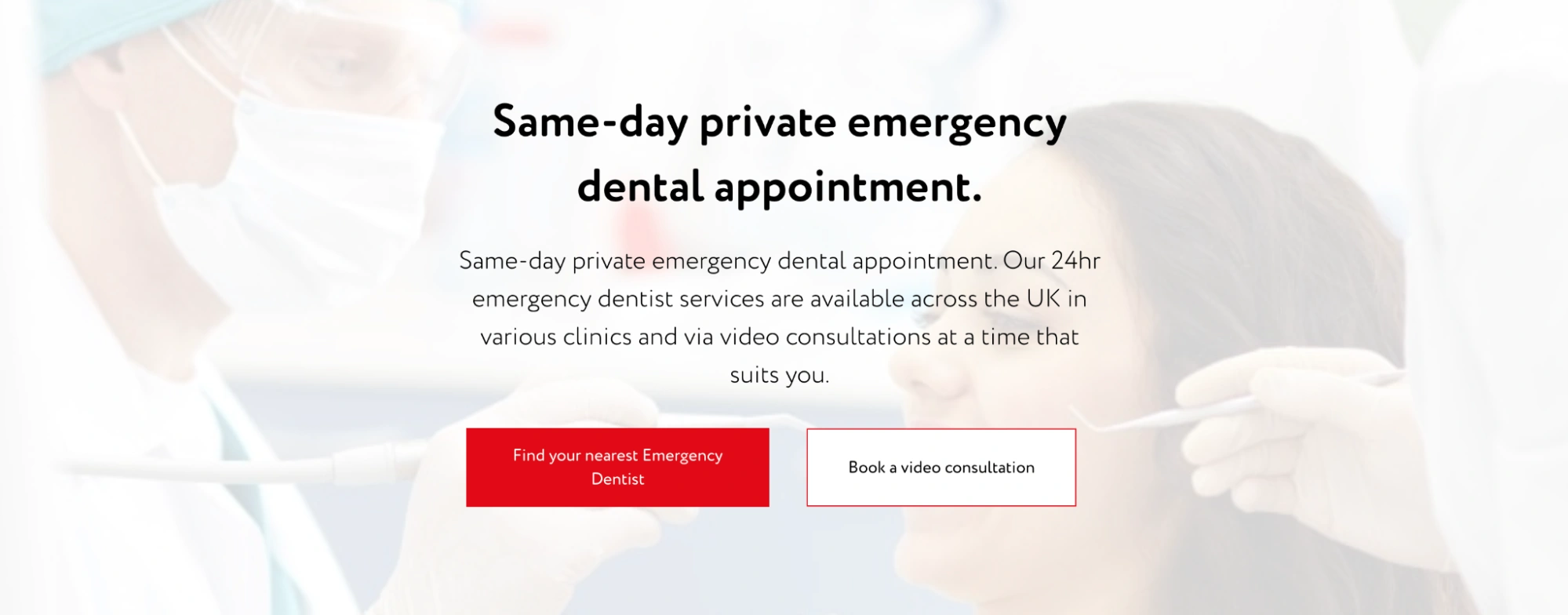
We started with full keyword research focused on emergency intent: “24-hour emergency dentist,” “same-day dentist,” “walk-in emergency dentist,” plus symptom queries and city/borough modifiers across the UK.
From that work, our dental SEO agency mapped more than 20 high-value location opportunities and prioritized them by search volume, competitive difficulty, and proximity to the clinic’s actual service areas.
With the plan in place, we set the homepage SEO foundation: clean titles and H1s, tight metadata, focused copy around emergency care, and clear internal links pointing to priority services and locations.
From there, we created unique copy for each location page. (no duplicates), reflecting the local area, urgent use-cases, hours, pricing/insurance notes, and strong calls to action.
Surprisingly, almost all of the targeted locations now rank in the top 1–5 positions for their primary emergency terms.
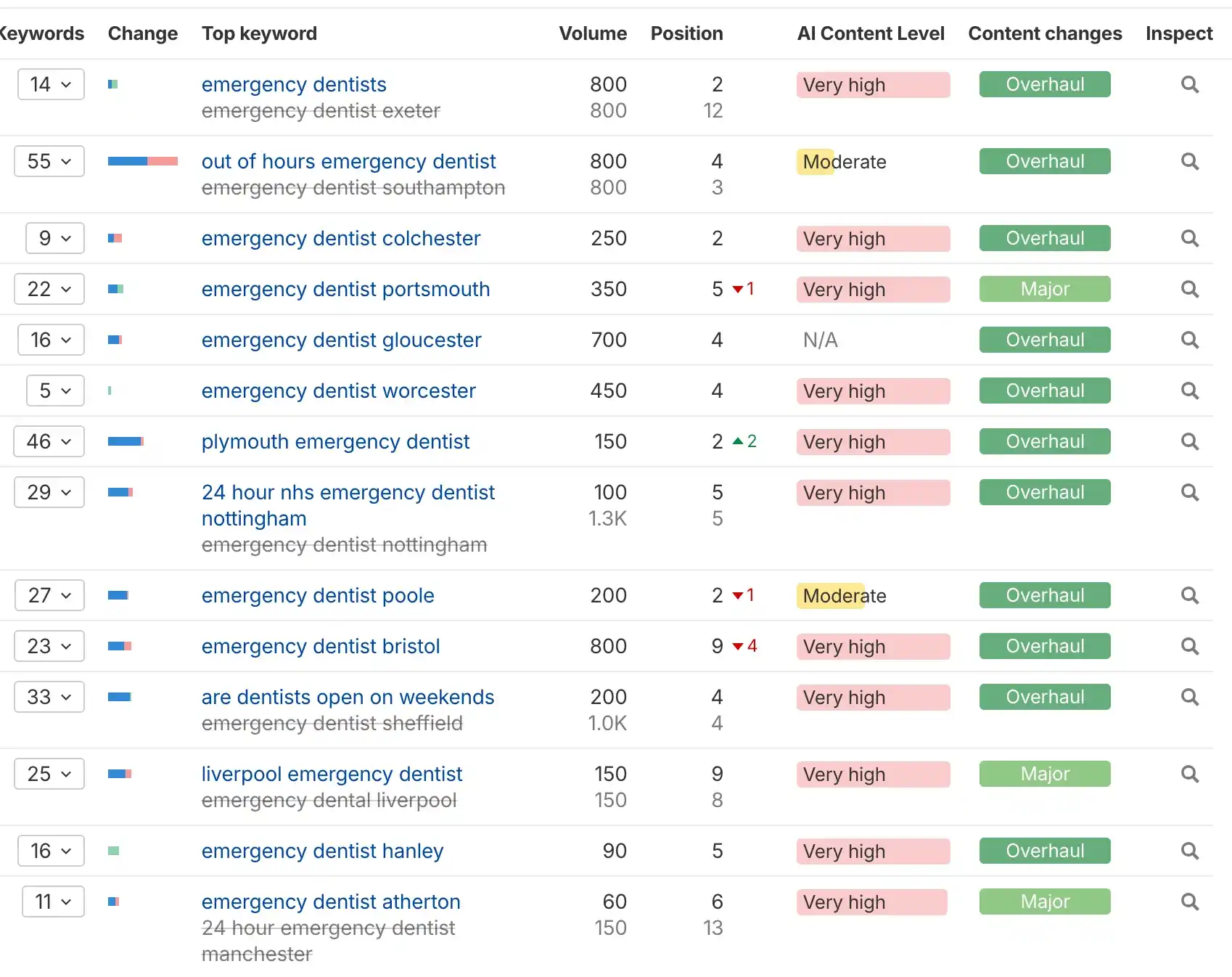
Once the foundation was in place, our focus shifted to on-page SEO and building topical authority. We conducted a fresh round of keyword research and competitor analysis to identify where the gaps were.
From that, we developed a content gap strategy and built out a hub-and-spoke model around the most important keywords with low competition; terms directly tied to emergency dental care in the UK.
Keywords like “emergency dentist cost” and similar long-tail queries became the backbone of this strategy.
Every piece we published was carefully linked together with strong internal linking, which helped distribute authority across the site. At the same time, we improved the UX on the blog, making it easier for users to navigate through related articles and find answers quickly.
We worked intensively on this project for about six months, but because of budget constraints, the client chose not to invest in link-building that year. After that, we shifted to a maintenance role and simply let the strategy run its course. Over time, the impact became clear.
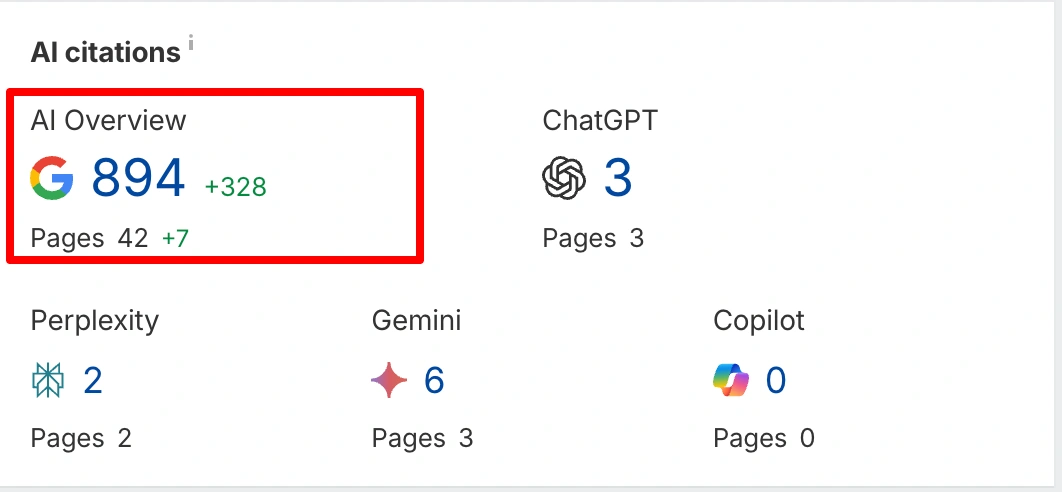
Within twelve months, the website’s organic traffic grew by more than 400%, jumping from around 5,000 visits to over 25,000 per month. In fact, if you look closely, the increase is closer to 500%.
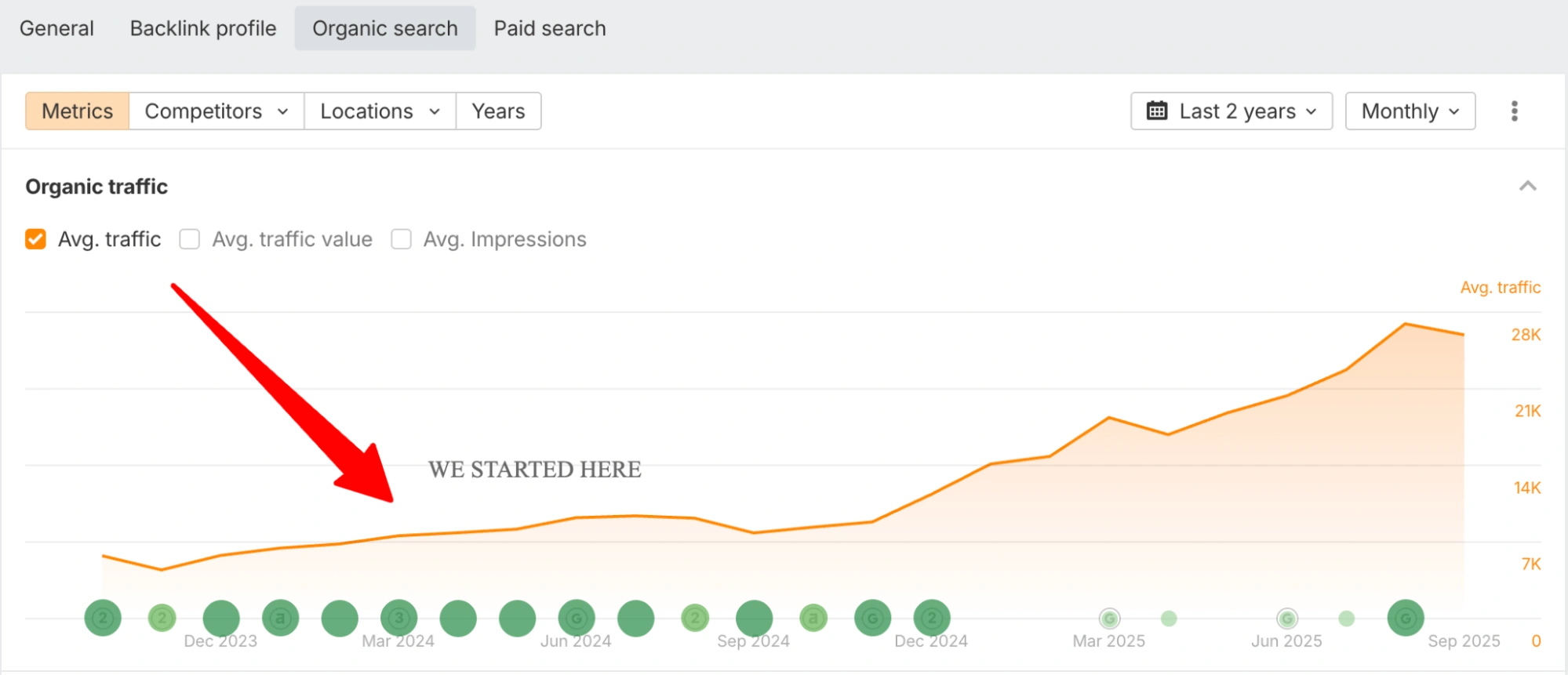
The most important part is that the clinic’s top emergency keywords now dominate the first three positions in search results across the UK.
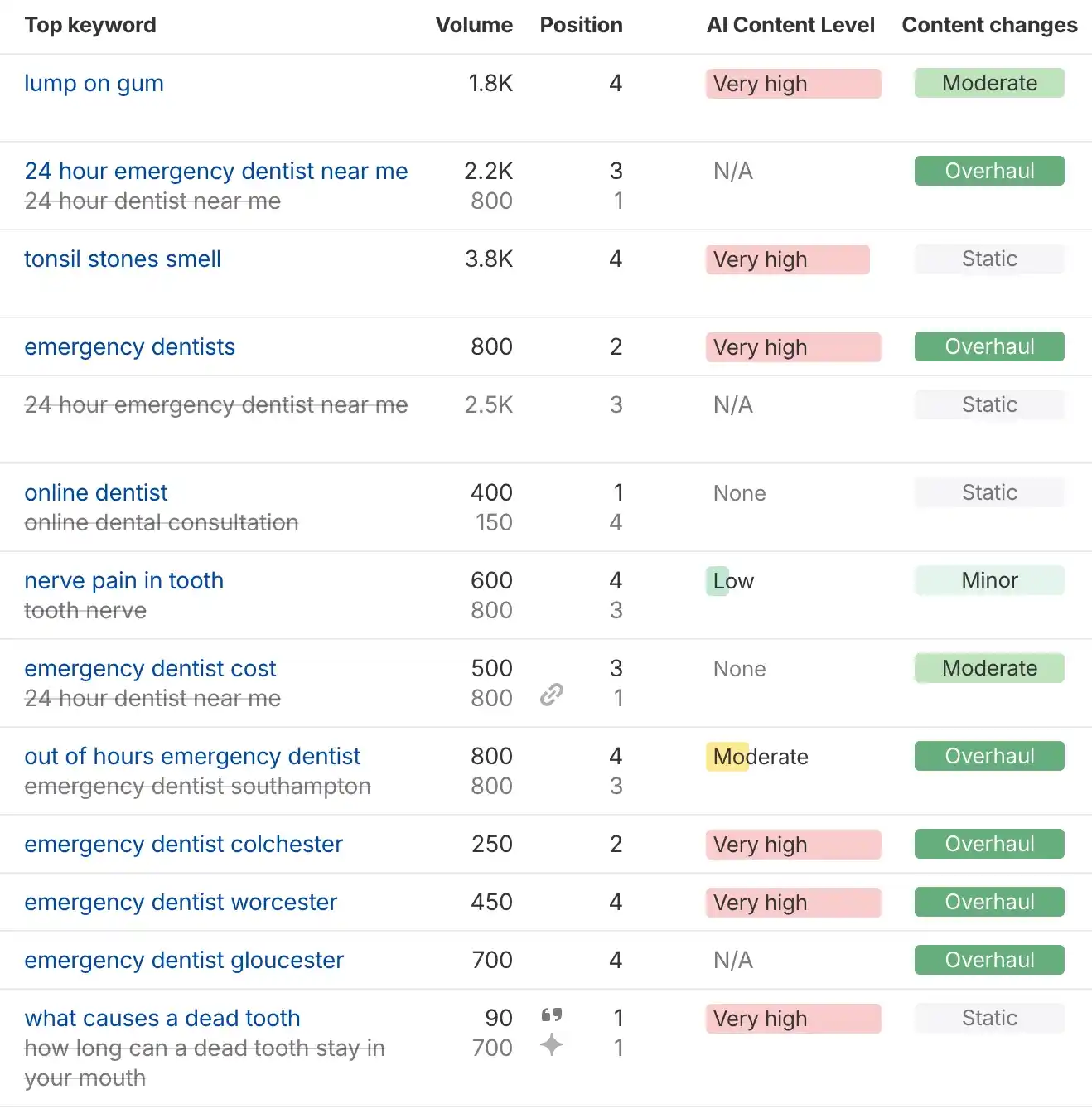
The site now attracts hundreds of thousands of people every month who are actively searching for urgent dental care, giving the clinic a consistent flow of new appointments.
With this healthcare provider, we didn’t run a full healthcare SEO campaign. From the beginning, there were red flags that later turned into lessons we’ll carry forward.
Their in-house SEO team decided to publish more than 1,000 programmatic location pages, even though we strongly advised against it.
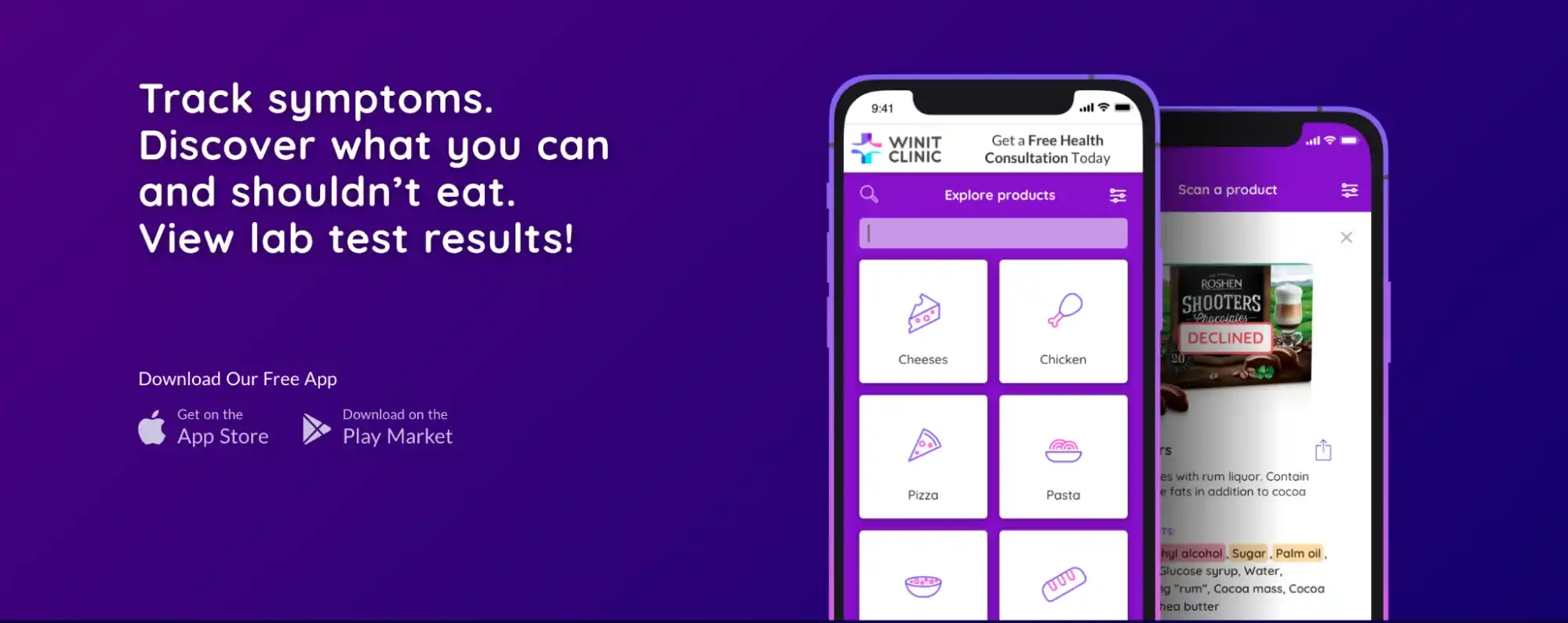
On top of that, they hired generic AI content writers with no healthcare background to produce their blog content. As expected, the results fell flat. The site never got the expected results we had hoped for, and eventually, the client chose to pause their overall SEO efforts.
But while on-page SEO was struggling, we focused on what we could control: off-page SEO. Our role was to build authority by securing high-quality backlinks.
Over the course of the link-building campaign, we acquired hundreds of links through different strategies.
This case study is less about traffic growth and more about how the right backlinks can strengthen authority, even when other parts of the SEO process aren’t executed properly.
For this campaign, our focus was entirely on HARO and similar link-building platforms. We began by optimizing the doctors’ profiles, making sure they highlighted the right credentials and expertise.
HARO was our primary platform, given how effective it is in healthcare, but we also used alternatives like Featured.com and a few others. To strengthen credibility, we created a dedicated “About Our Doctors” section on the website, showcasing certifications and professional backgrounds.
From there, we set up tracking on HARO and the other platforms to monitor every pitch and response. Over the course of six months, our outreach secured more than 100 backlinks.
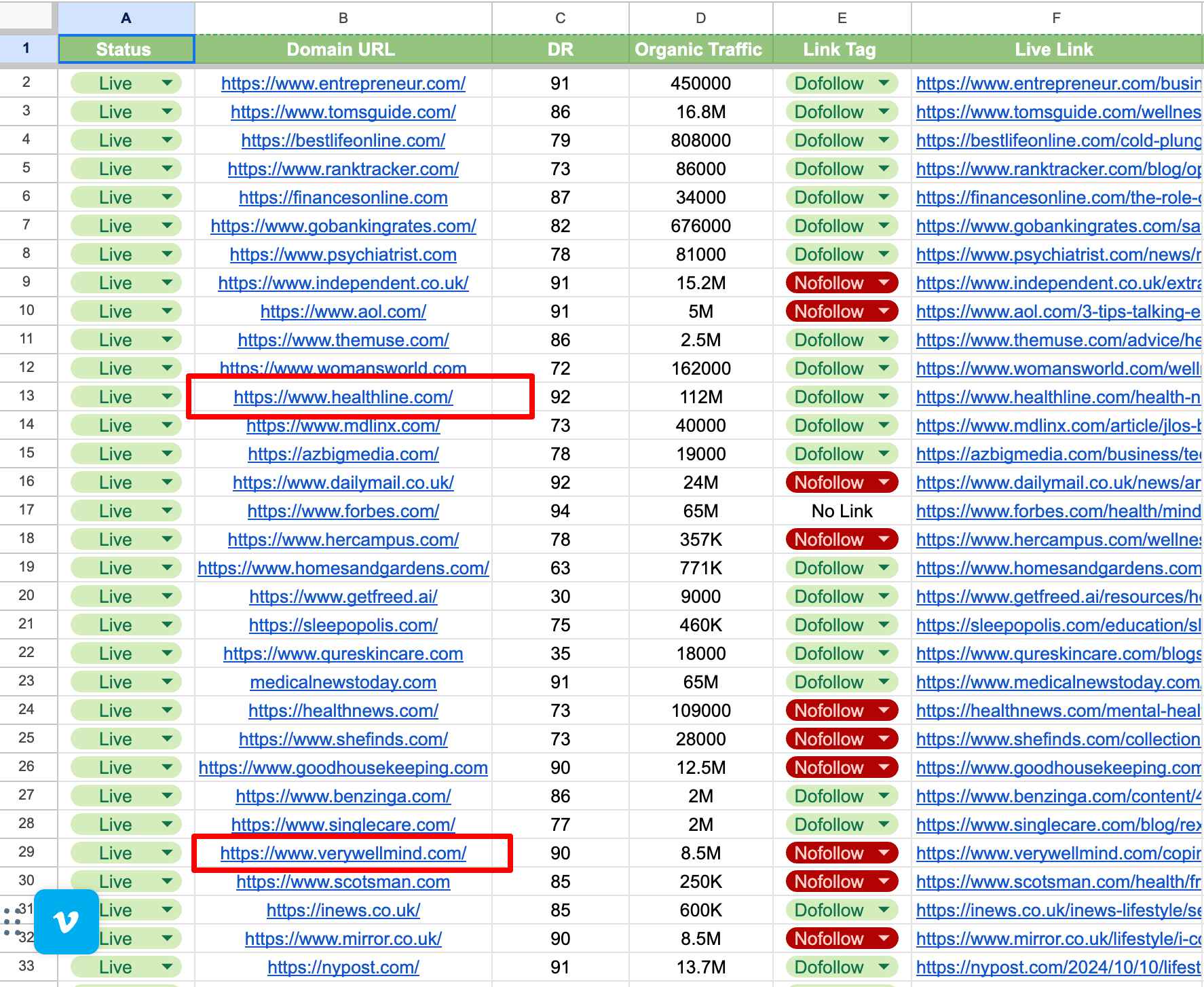
These included a healthy mix of dofollow, nofollow, and brand mentions, with most links coming from highly authoritative websites. The average referring domain rating was DR 70+, and the sites themselves averaged over 300,000 monthly organic visitors.
You might also be interested in exploring more about our link-building case studies in our dedicated guide.
Best of all, the majority were directly tied to healthcare, wellness, and medical niches, platforms like Healthline, Medical News Today, and Verywell Mind.
This case study shows that even if other parts of SEO aren’t executed perfectly, the right backlink strategy can still deliver serious authority. If you’re looking for similar results, you can consider our HARO link-building services or request a custom off-page SEO proposal.
In 2023, while freelancing on Upwork, I got a project in the healthcare industry that was completely new to me at the time. The company was a supplier of laboratory equipment, glassware, and extraction systems. They operate as both B2B and B2C, serving businesses, labs, and individuals looking for specialized scientific equipment.
From the beginning, I was clear with the client: we weren’t going to do a full SEO campaign. Instead, the scope was to set up a strong foundation: clean technical structure, on-page SEO, and the basics needed for long-term growth. Over the span of two to three months, we implemented those essentials and left the rest in the client’s hands.
What makes this case unique is what happened afterward. Two years later, out of the blue, I received a message from the client. He was genuinely grateful, telling me that the site was performing very well and that the initial SEO work had continued to pay off, even though they hadn’t invested in ongoing SEO after our work ended.
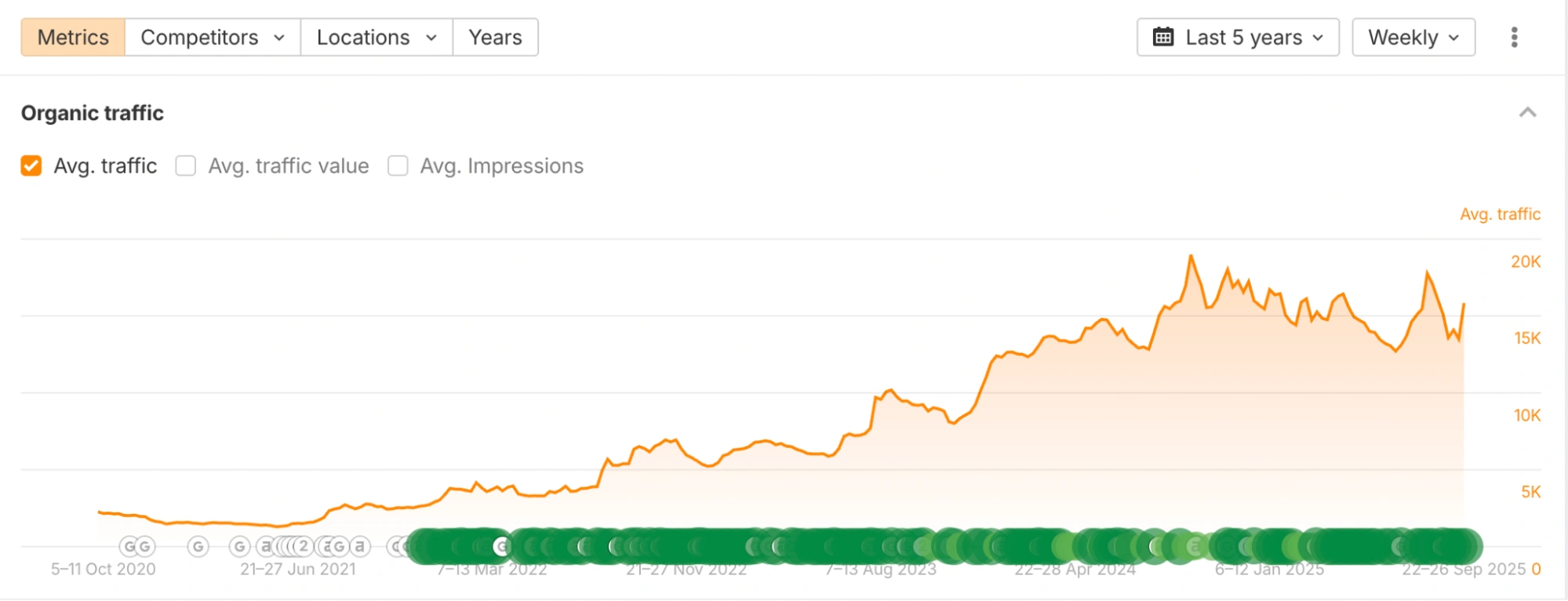
This wasn’t a case where we managed everything from A to Z, and I want to be honest about that. Instead, it’s an example of how the right foundation, set up properly from the start, can carry a website for years.
Today, I’d even say the client and I have become more like friends than just business partners, which makes this story even more meaningful.
Back in 2023, there was no ChatGPT, no AI Overviews, and SEO looked very different from what it is today. AI-driven SEO services weren’t a priority then, and in this niche, the competition was relatively low. That alone was a key factor that worked in our favor (IMO).
I wouldn’t say our SEO agency reinvented the wheel on this project. We handled the essentials: keyword research, keyword mapping, technical SEO setup, fixing cannibalization issues, removing duplicate content, and a handful of other basics.
But the real difference came from one simple yet powerful move.
Instead of treating collection pages as broad, catch-all hubs, we split them into sub-collection pages.
Each sub-page targeted long-tail opportunities with almost zero keyword difficulty and modest but steady search volumes.
This gave us the ability to cover hundreds of highly specific queries that competitors weren’t paying attention to.
I’m convinced this single decision was the turning point. The site went from a small base of branded traffic (around 2–3K per month) to more than 15K in non-branded traffic over the next two years; all without building backlinks, without overthinking E-E-A-T signals, and without investing in a “perfect” UX redesign.
This was one of the best healthcare service providers we’ve had the chance to work with, mainly because the results came fast and the collaboration was seamless.
Within just six to eight months, we started seeing significant improvements, which is relatively quick for a multi-location project of this scale.
The client was a diagnostic imaging provider operating across more than 60 outpatient centers in states such as Texas, Colorado, and Oklahoma.
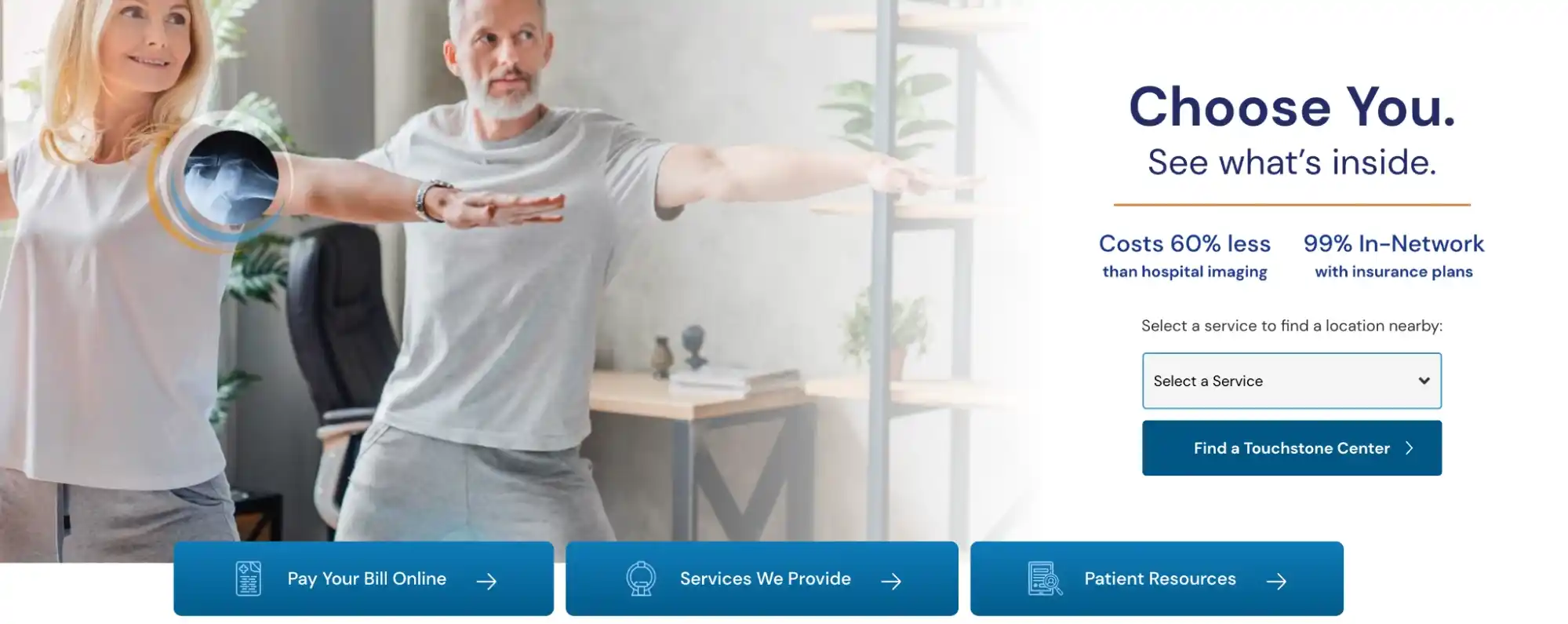
Their services included MRI, CT scans, X-rays, DEXA, bone scans, and other diagnostic procedures. What made this project stand out wasn’t just the scope, but also the client’s attitude; they trusted us completely and executed every recommendation we provided without hesitation.
The first step was a full SEO audit of the website and a deep dive into the competitive landscape. We analyzed the top players in the diagnostic imaging space and identified where our client could realistically compete.
From that research, we built a custom SEO strategy and a detailed six-month roadmap that outlined what needed to be done to achieve measurable results.
We prioritized quick fixes, as well as building a structured approach to scaling SEO across more than 60 outpatient centers, making sure each location could earn visibility in its own market while also contributing to the overall authority of the brand.
You might also be interested in checking out our SEO audit pricing guide to see how we structure costs and deliverables.
After the initial analysis and full SEO strategy development, we moved forward by creating dozens of location pages with customized copywriting and tailored on-page elements.
Each page was unique, written specifically for the services available in that region, ensuring we avoided duplicate content issues and made every page relevant to local patients searching for care.
The results:
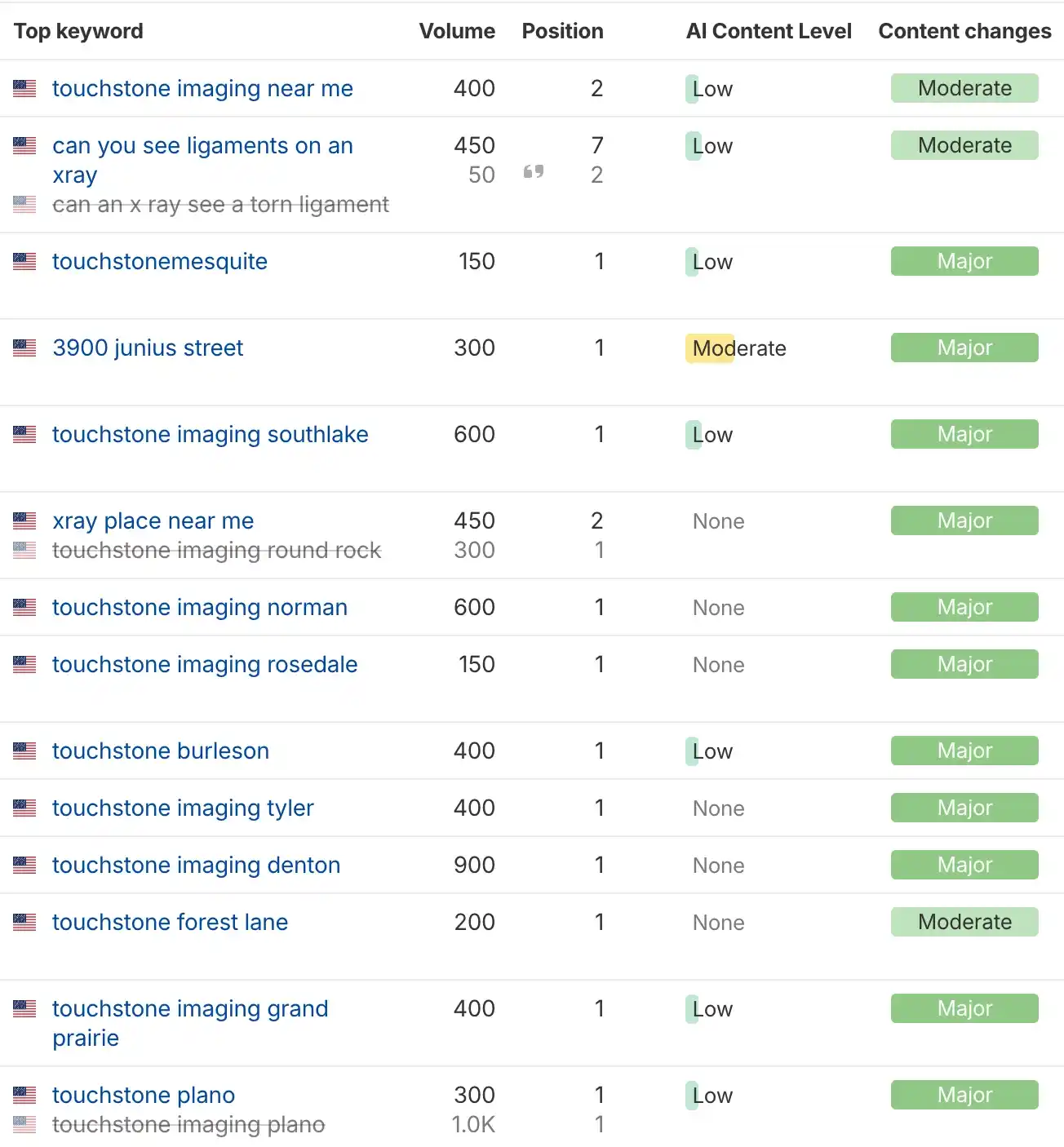
The next step was setting up and optimizing the Google My Business profile for each outpatient center. This wasn’t as straightforward as it sounds.
We faced advanced challenges such as duplicate listings created by past marketing teams, inconsistent NAP (Name, Address, Phone) data across directories, and cases where Google flagged or suspended profiles because of overlapping service areas.
Cleaning all of this up required careful verification, citation building, and ongoing monitoring to make sure every profile remained active and accurate.
Once the local SEO foundation was in place, we developed a content strategy split between bottom-of-the-funnel (BOFU) and middle-of-the-funnel (MOFU) topics.
Blog traffic growth GSC report (2024 October – 2025 June)
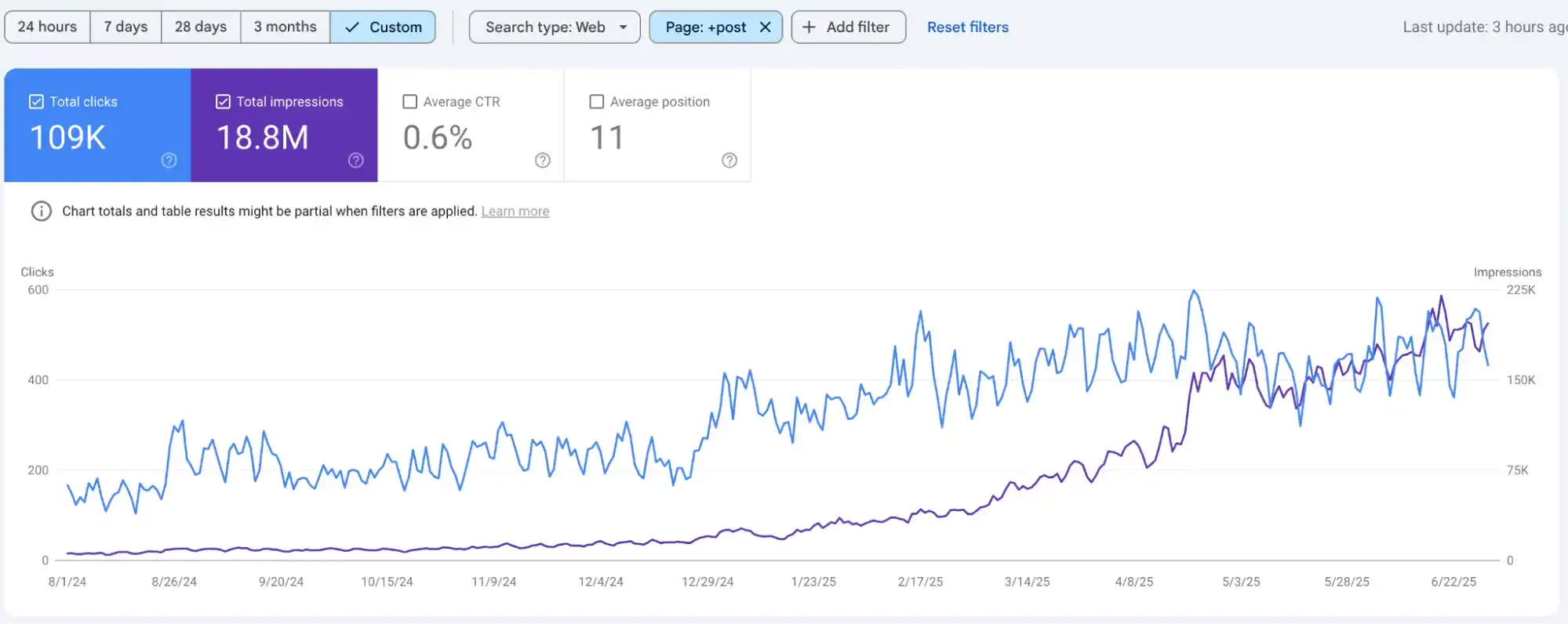
Our team could capture high-intent searches around imaging services while also building broader topical authority with educational content.
To make sure the content met Google’s E-E-A-T standards, we hired a medical SEO content writer who could combine accuracy with optimization.
We also built strong internal linking between service pages and blog posts to strengthen site architecture and improve the overall user experience.
From there, it became a process of continuous improvement. We kept updating top-performing landing pages, refreshing content to maintain rankings, and tightening internal linking as the site grew.
Alongside our efforts, the company ran several digital PR campaigns. Combined with our own linkable assets, these campaigns helped earn high-quality backlinks from well-known health-related websites and media publications, further boosting the site’s authority.
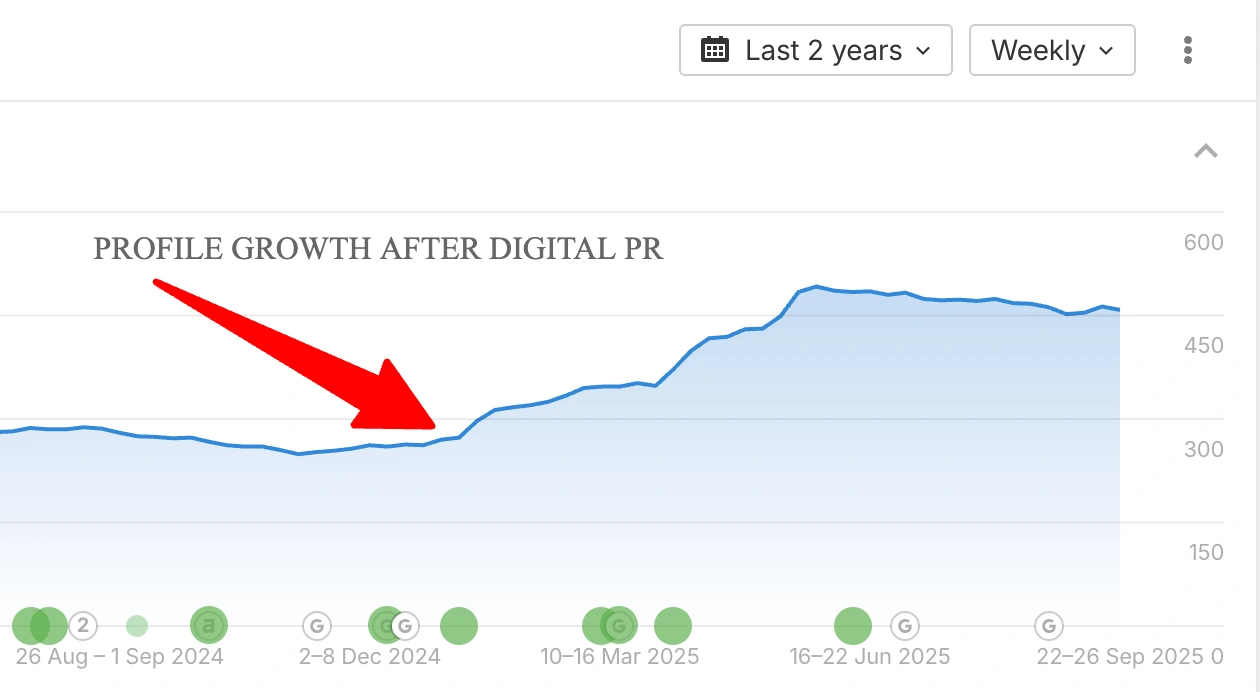
Within just eight months, the impact was clear. Organic traffic grew by more than 350%, with hundreds of new leads flowing in from across the client’s service areas.
We saw a significant increase in branded searches and a stronger brand reputation overall, as the company established itself as an authority in diagnostic imaging.
More than 30 locations across the United States began dominating local search results, and we even secured top rankings for highly competitive keywords in the industry.
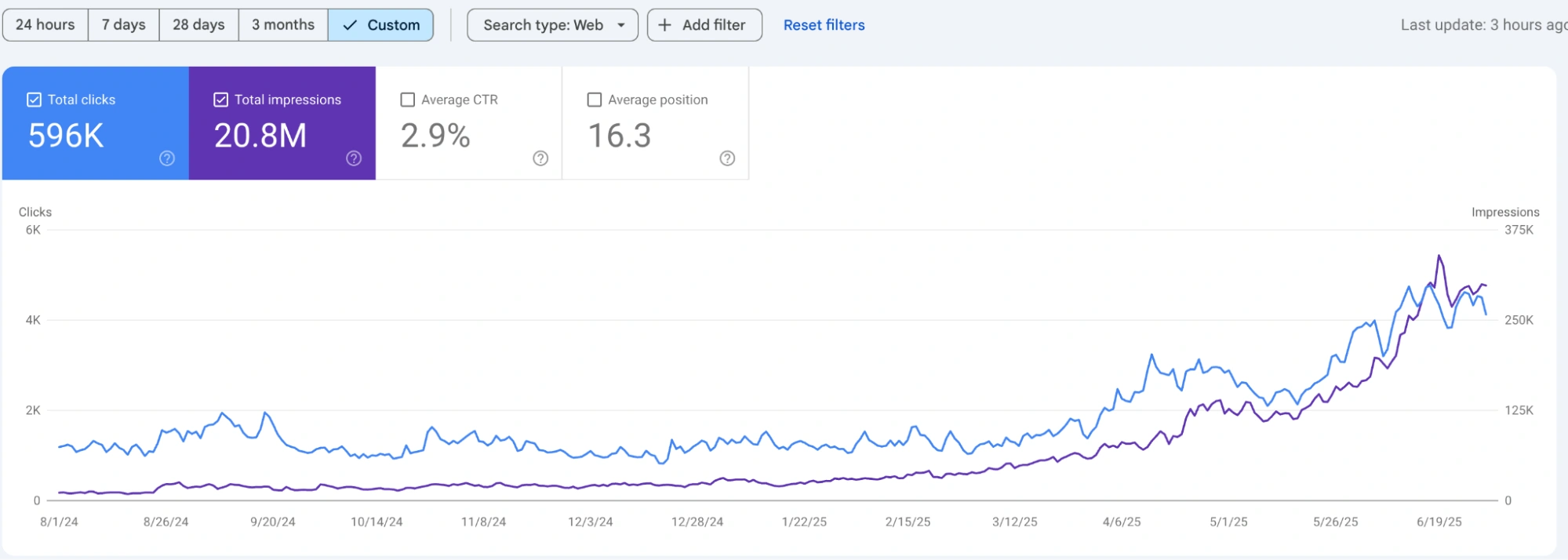
This was one of the most successful healthcare SEO case studies we’ve ever led.
Traffic from ChatGPT (Last 10 days):
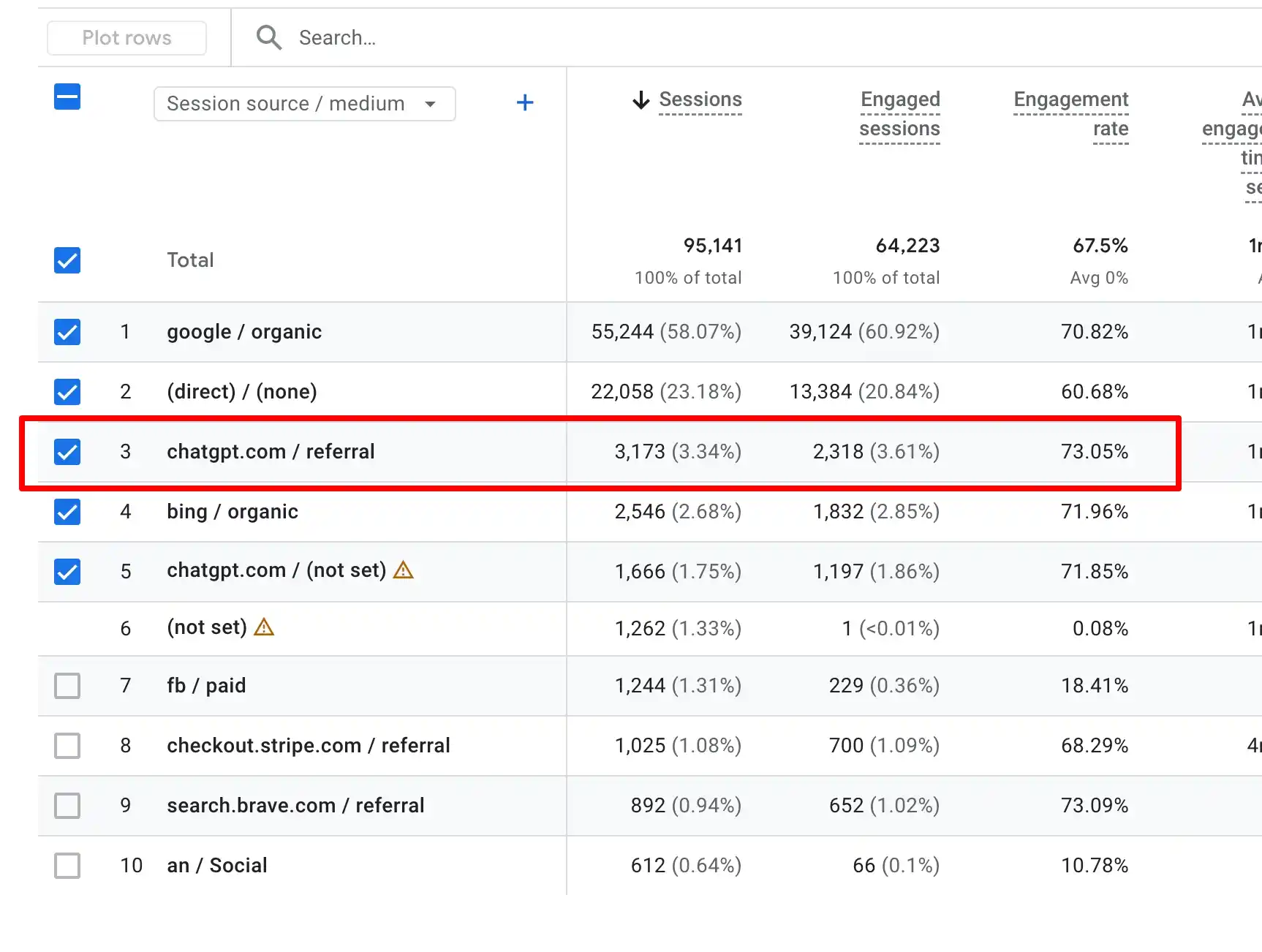
Beyond the numbers, the most important result was client satisfaction. They trusted the process, followed through on our recommendations, and are still working with us today as we continue building on this progress.
It’s worth noting that this was a WordPress-based website, which allowed us to implement changes efficiently and scale content across dozens of locations. If you’re looking for similar results, you can also consider our WordPress SEO services to give your business the same advantage.
NatruSmile is a dental e-commerce brand specializing in teeth whitening solutions. Their product line includes whitening kits, whitening strips, whitening pens, LED light systems, whitening toothpaste, and whitening trays.
The company officially launched in 2023, but I had already been working closely with the founder since 2022, which made the collaboration smooth from day one.
The primary goal for NatruSmile was to establish strong topical authority in the dental space and, over time, secure top rankings for six to eight core product categories.
The biggest challenge, however, was the competition on the search results page. For almost every product keyword, the top spots weren’t held by direct competitors but by massive sites like Amazon, Walmart, Colgate, or media publications like Good Housekeeping, ranking with listicle-style affiliate content.
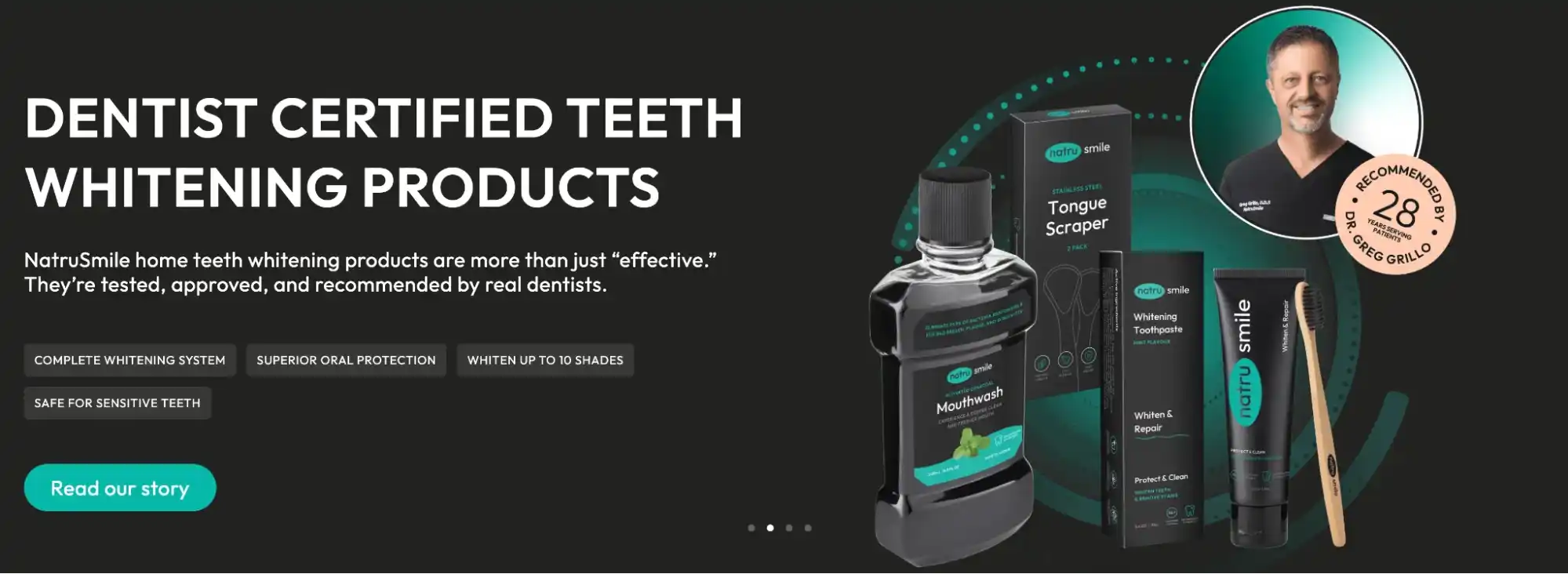
Because of this, our strategy was clear: invest heavily in content. Competing head-on for product keywords with high difficulty wasn’t practical in the early stages, so we focused instead on building a library of high-quality, educational, and authority-driven content around dental care and teeth whitening.
We began by conducting keyword research to map the eight core product categories and set the groundwork for the site. From the technical SEO setup to refining the website’s header, footer, and overall UX design, we made sure the foundation was solid before the launch.
Once the site went live, our main investment was in content. To maintain Google’s E-E-A-T standards, especially important since dental SEO falls under the Your Money, Your Life category, we brought in a retired UK dentist to review and contribute to the material.
The dental space offered thousands of possibilities, but we focused on the low-hanging fruit: long-tail keywords with lower competition and practical search intent.
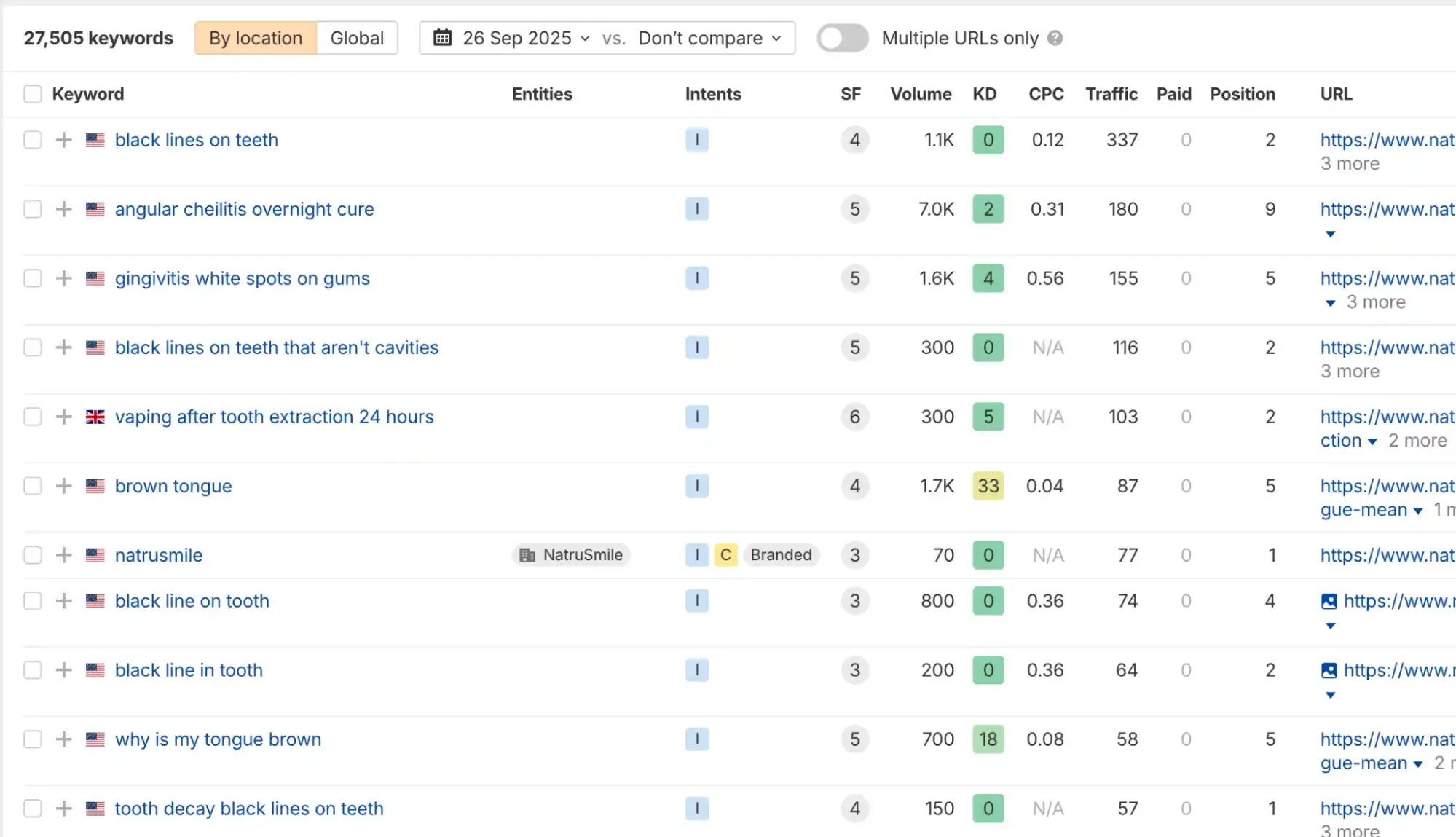
For each chosen topic, we performed detailed page-level competitor analysis, then produced content that was 10x more comprehensive than anything ranking on the first page.
The dentist’s expertise allowed us to go deeper and ensure accuracy while keeping the copy accessible for readers.
In total, we produced over 200 content pieces and carefully interlinked them to build topical clusters.
Next,
Off-page SEO played a supporting role. Within six months, our healthcare link-building agency built more than 120 contextual backlinks using a mix of niche edits, guest posts, and PR link-building. These links provided the authority boost the site needed to support its growing topical depth.
In just 12 months, my strategic SEO campaigns successfully propelled the website from having virtually no organic traffic to achieving a remarkable milestone of 10,000 monthly visitors.
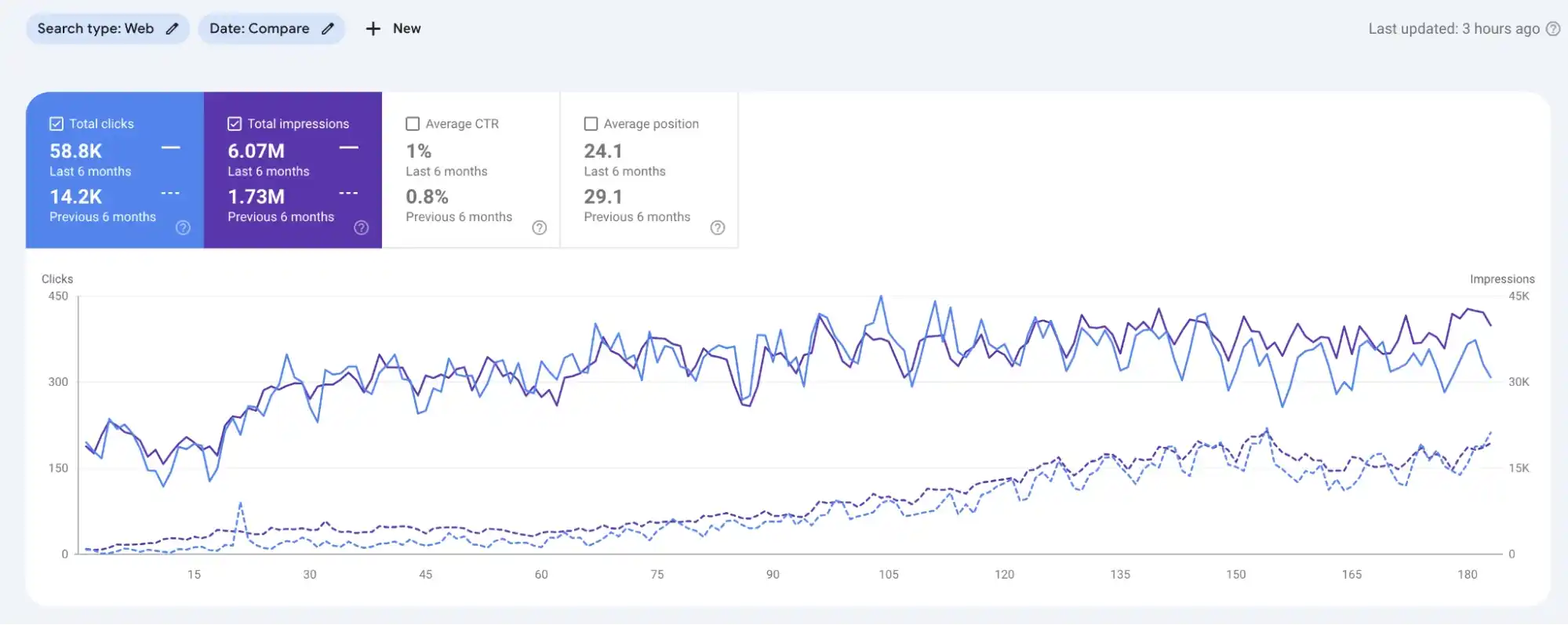
Last 28 days compared to the same period last year
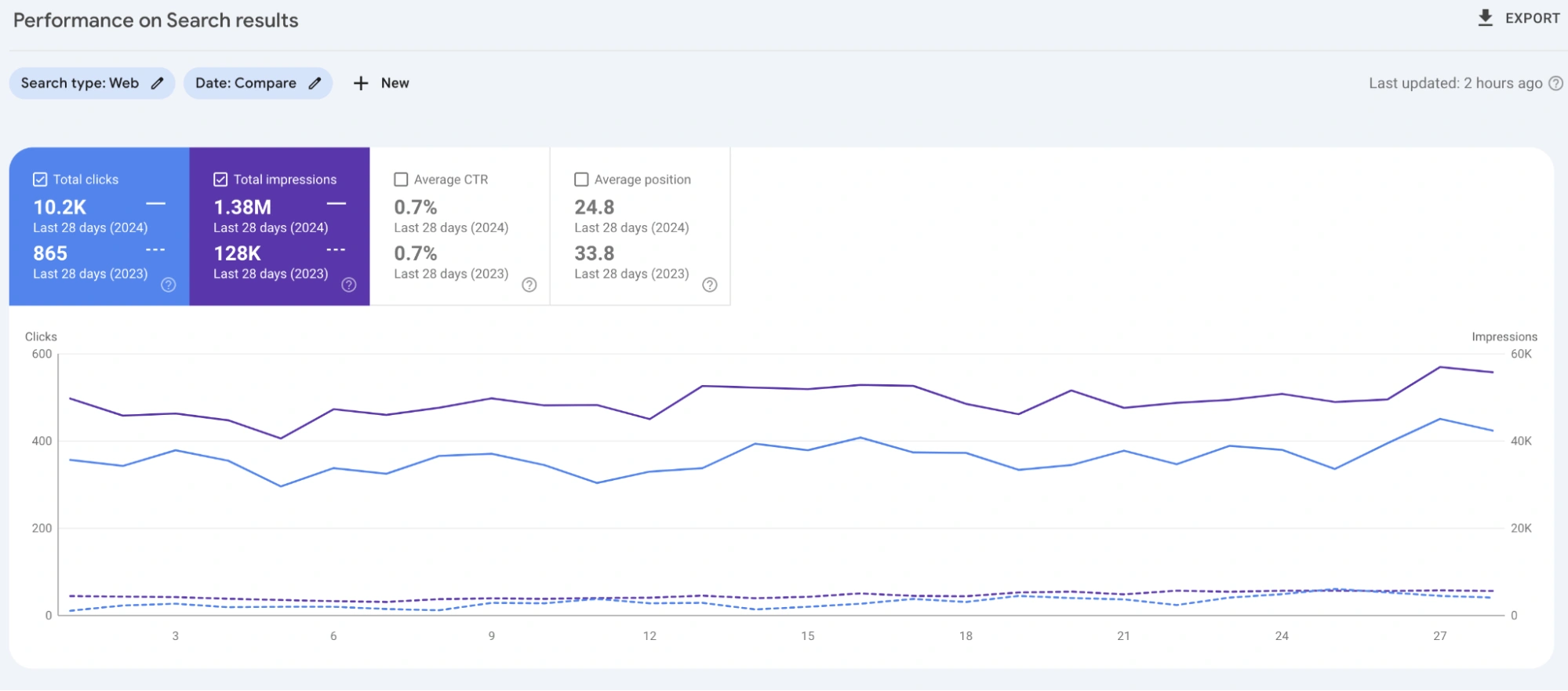
Increase in Domain Rating: Within 12 months, the website’s domain rating (DR) increased from 0 to 28, marking a huge growth. The acquisition of 120 high-quality, niche-relevant backlinks significantly boosted the website’s authority and credibility.
Our next client is a healthcare SaaS platform designed to help providers, especially in dental and medical practices, manage patient financing more effectively. It offers no-credit-check payment plans, automated billing, and revenue cycle management tools, giving practices a way to serve more patients while reducing administrative headaches.
In short, it’s built to make treatments more accessible for patients while helping healthcare providers secure steady cash flow.
The platform primarily serves B2B clients: dental clinics, medical offices, and other healthcare businesses, but indirectly, it also benefits B2C patients who gain access to affordable payment solutions.

We started working on SEO last year, and from the beginning, one of the biggest challenges was figuring out how to turn indirect audiences into direct leads.
Patients may use the platform, but it’s the providers who are the paying clients. Our strategy needed to bridge that gap, attracting healthcare businesses while still creating content that built trust with patients searching for financing options.
The first thing we did was analyze what the market was already rewarding. By looking at keyword data and competitor trends, it became obvious that the biggest opportunities weren’t just in generic SaaS terms or provider-focused searches, but in cost-related and financing keywords tied to dental and medical treatments.
Phrases like “cost of full mouth dental implants”, “free dentures for low-income adults”, and “skin removal surgery cost” were driving significant traffic. These were people at a critical decision point, where affordability was the biggest barrier.
You can also explore more by checking out our detailed SaaS SEO case studies.
So our content strategy focused on this space. We created detailed, comprehensive pages around treatment costs, financing options, and patient resources. At the same time, we developed industry landing pages, like the dedicated dental financing hub, to funnel this high-intent informational traffic back toward Denefits’ B2B SaaS offering.
We prioritized dental first, since roughly a third of the opportunity sat there, then expanded into cosmetic and elective procedures where financing was equally relevant.
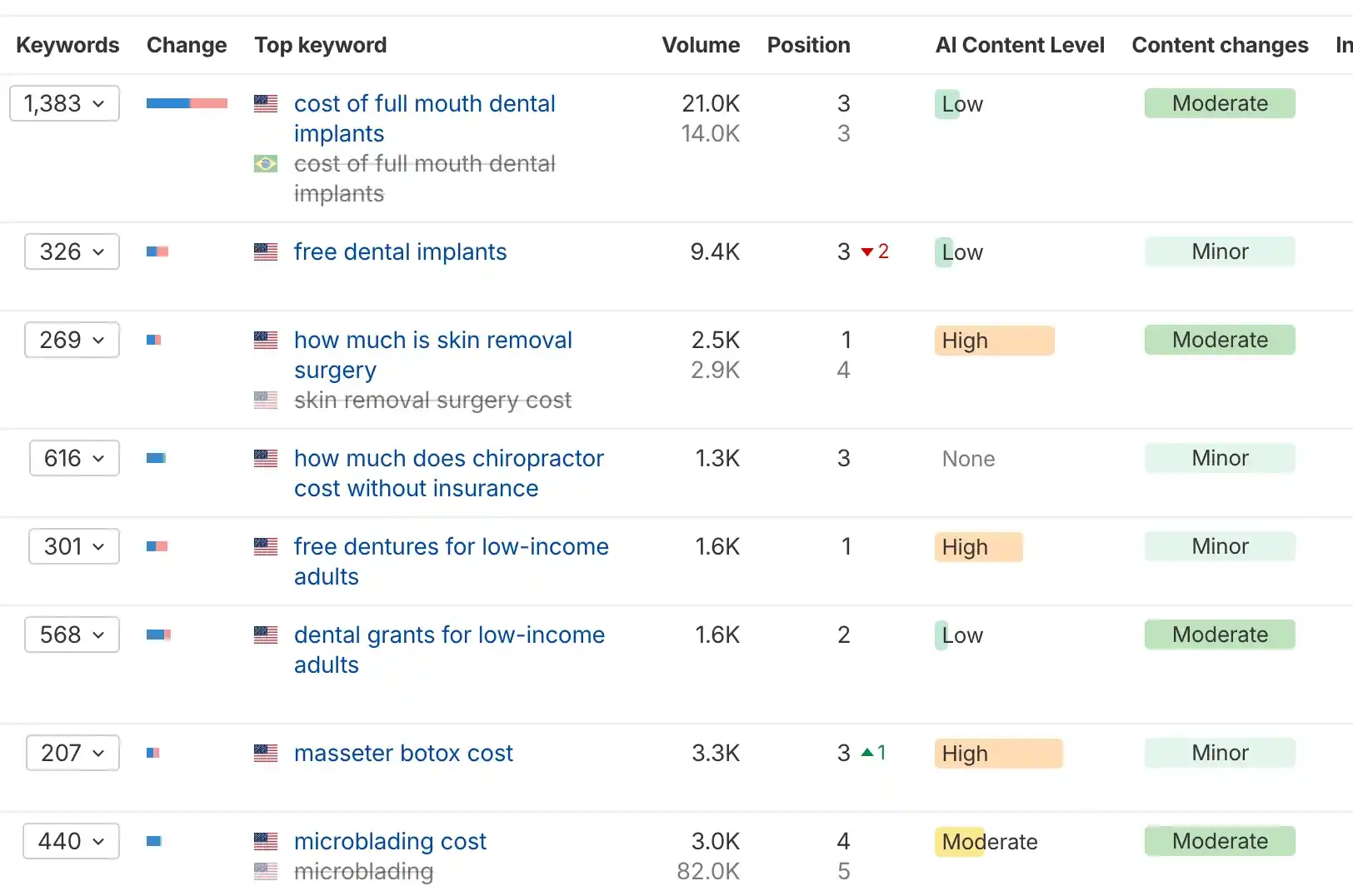
Every piece of content was structured to build topical authority: clusters of long-tail keywords, interlinked articles, and in-depth guides that outperformed the thin listicle content dominating the SERPs from dental clinic sites.
By doing this, we positioned our client’s website not just as a software provider but as a trusted resource in the broader healthcare financing conversation.
With a limited budget, we also built around five to ten backlinks each month to give the site an extra push, keeping the backlink profile natural while steadily increasing topical authority across the healthcare industry.
Within just over twelve months, starting completely from scratch, we scaled Denefits from zero to more than 100,000 monthly organic visitors. The majority of this traffic came from blog posts, but that was exactly the point; it allowed us to capture a wide audience at the informational stage and then funnel them toward the SaaS solution.
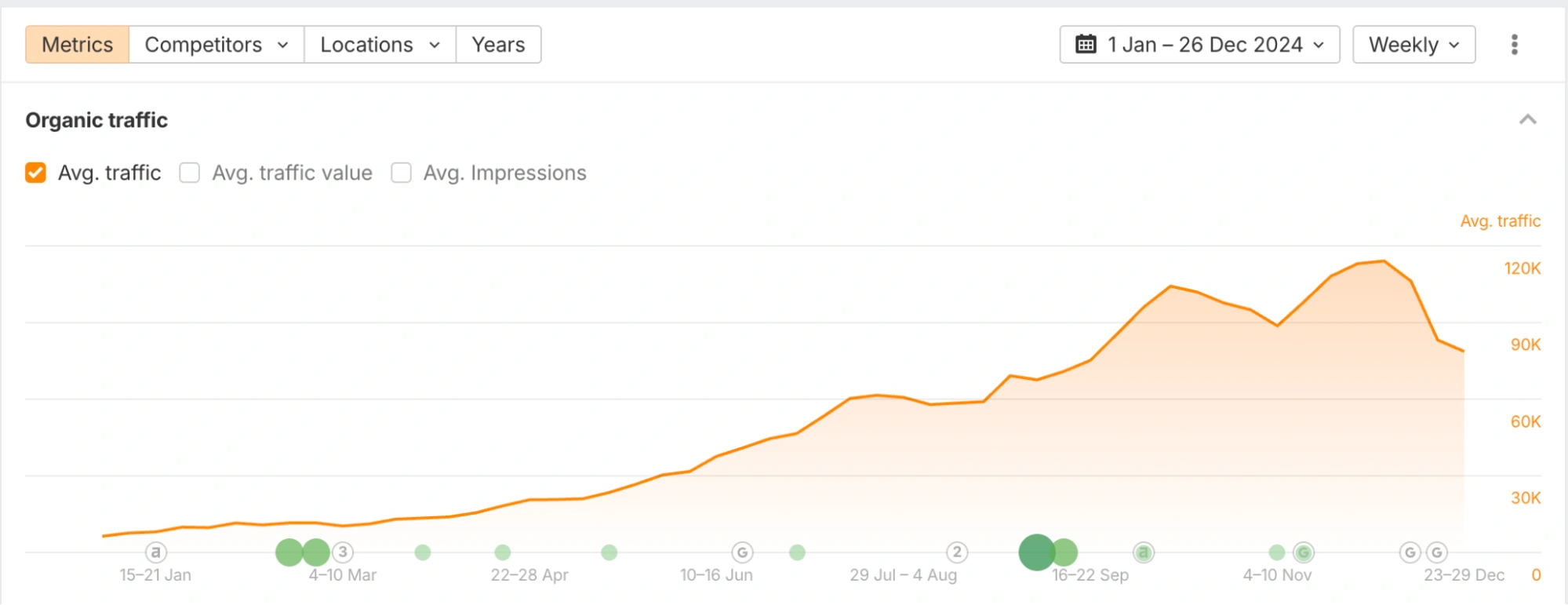
This strategy not only attracted B2C patients searching for affordable treatments but also B2B healthcare providers who saw the value in offering financing options.
Beyond traditional SEO, we also achieved significant visibility in AI Overviews, ChatGPT, Perplexity, Gemini, and other LLM-driven search experiences. By consistently producing high-quality, medically accurate content on a well-structured and accessible website.
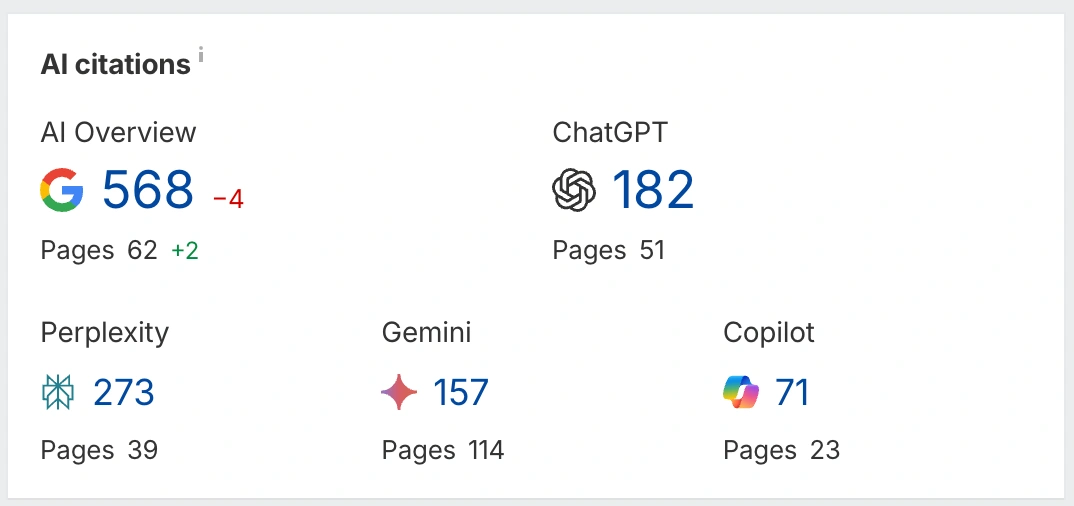
Our client’s SaaS became a trusted source of answers for both search engines and AI systems. This further amplified the reach of their content and positioned them as a leading voice in the healthcare financing space.
This wasn’t a full-scale SEO campaign but a focused link-building partnership. Pro Teeth Guard is a dental e-commerce brand specializing in custom-fit night guards, mouthguards, and teeth grinding protectors.
Their business model is direct-to-consumer, with products designed to help patients protect their teeth comfortably and affordably.
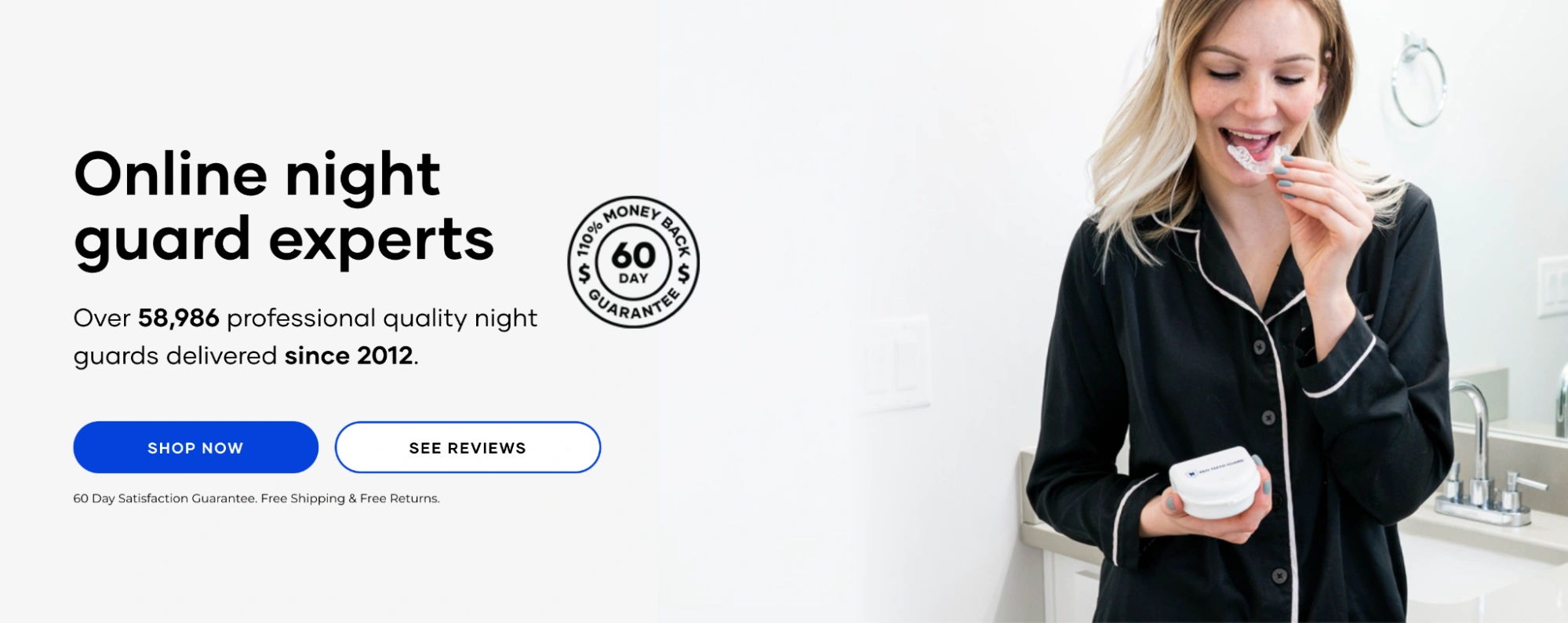
Our role was to strengthen the brand’s authority through off-page SEO. We worked with the client exclusively on link-building and, over the course of the campaign, secured more than 30 backlinks using a mix of strategies.
These included HARO placements, guest posting, niche edits, and targeted PR backlink campaigns. The goal wasn’t just traffic; it was about building trust, improving domain authority, and setting up the foundation for stronger rankings across competitive e-commerce keywords.
For Pro Teeth Guard, we combined traditional link-building with a smart content-refresh approach. We began by analyzing their existing blog posts and identifying the ones that were already ranking in the top three positions and naturally attracting backlinks.
We then updated these posts, making them more detailed, visually appealing, and user-focused. This alone increased their chances of earning organic backlinks without outreach.
To give those pages an extra push, we supported them with targeted guest posts and niche edits opportunities.
At the same time, we worked to elevate the overall authority of the domain. Through HARO outreach, we secured 15–20 additional backlinks from a healthy mix of dofollow, nofollow, and brand mentions on reputable publications.
Here are some examples:

Together, these efforts created a well-rounded and natural backlink profile.
The outcome was clear: Pro Teeth Guard strengthened its authority in the dental e-commerce industry, got higher positions for key product-related keywords, and attracted extra traffic, including visibility across AI-driven search engines. It was a focused campaign, but one that delivered lasting value for the brand.
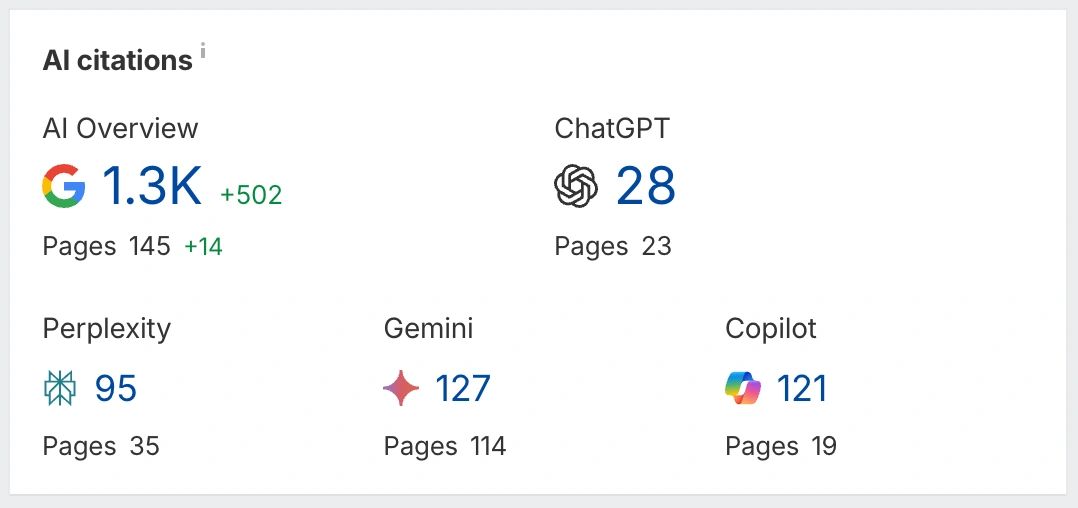
In the fast pace of agency life, we rarely have the chance to slow down and share our work openly, whether it’s the successes we’re proud of or the lessons we’ve learned from projects that didn’t go as planned.
Case studies like these are a reminder that every campaign has its own challenges, nuances, and breakthroughs, and just as we take time to reflect on our results, you can also do the same with your own SEO journey; review what worked, what didn’t, and where you might need expert support.
If you’re looking for similar results or want to see how a tailored strategy could work for your business, don’t hesitate to reach out. Contact Digital World Institute today for a custom proposal, and let’s build something that drives real, measurable growth.